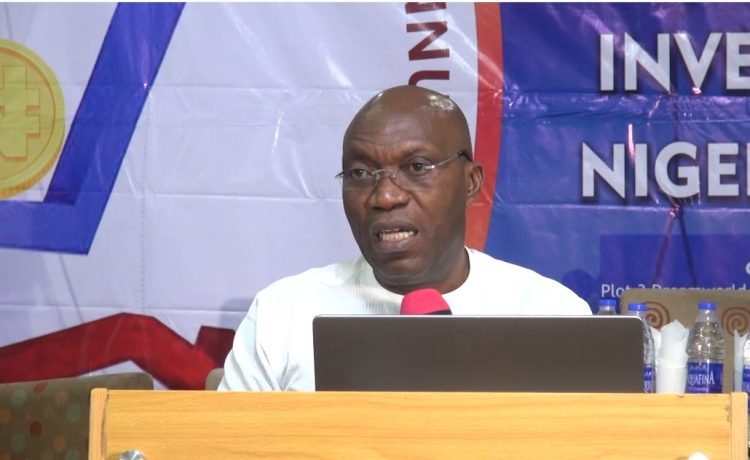Prominent economist and CEO of Cowry Asset Management Limited, Mr. Johnson Chukwu, has called on the Central Bank of Nigeria (CBN) to utilize available infrastructure technology and Bank Verification Numbers (BVN) to expedite the verification process of banks’ capital-raising offers.
Speaking at the Capital Market Correspondents Association of Nigeria (CAMAN) annual workshop, Chukwu highlighted the ongoing delays in the apex bank’s verification process, which has raised concerns among investors.
The economist pointed out that nearly four months after some offers closed, investors are still waiting for the CBN to finalize the verification process. This delay, according to Chukwu, has hindered reinvestment opportunities, particularly in cases where the offers have been oversubscribed and funds may be returned to investors.
He argued that by deploying the high level of Information Technology available at the CBN, alongside leveraging BVN, the process could be greatly expedited, ensuring that investors receive their allotments promptly or have the flexibility to redirect their funds into other profitable ventures.
Chukwu emphasized that while verifying the source of capital is crucial for maintaining the integrity of the financial system, the prolonged verification period is damaging investor confidence. He also expressed concerns over the current stringent requirements for corporate investors seeking to participate in bank share offers.
Citing the need for three years of audited financial statements, board resolutions, and tax clearance certificates, Chukwu argued that these conditions are discouraging investment in the capital market, creating unnecessary barriers for both issuers and investors.
In addition, Chukwu stressed that banks’ recapitalization is a vital strategy for strengthening the banking sector and driving Nigeria’s economic growth. He suggested that by bridging the gap between investors and issuers in the capital market, Nigeria could see enhanced capital flows into the banking sector.
The economist explained that when banks successfully raise capital through IPOs, rights issues, and bonds, it sends a positive signal to the financial market, increasing investor confidence and making the sector more attractive for further investment.
Despite his concerns, Chukwu commended the Nigerian capital market’s role in banks’ recapitalization efforts. He called for closer collaboration among banks, investors, and regulators to ensure the sector remains resilient, competitive, and capable of sustaining Nigeria’s economic growth.
Additionally, he urged the CBN and other regulatory bodies to stabilize the regulatory environment by minimizing frequent policy changes, allowing for better planning and reducing the risks associated with such uncertainties.
Chukwu concluded by urging banks to improve their transparency and disclosure practices, emphasizing the importance of publishing accurate financial statements and risk disclosures.
This, he said, would help mitigate information asymmetry and foster trust among investors, ultimately unlocking greater opportunities for bank recapitalization.
“The frequency of regulatory policy changes need to be moderated to allow for better planning for both banks and the investing public as well as reduce the regulatory and operational risks associated with these frequent changes.
“Banks must commit to improving their transparency and disclosure standards. This includes the publication of detailed and accurate financial statements, risk disclosures, and forward-looking guidance.
“By addressing the challenges of information asymmetry, regulatory uncertainty, and liquidity, while improving transparency, corporate governance, and financial innovation, the Nigerian capital market can unlock new opportunities for bank recapitalisation,” he said.







